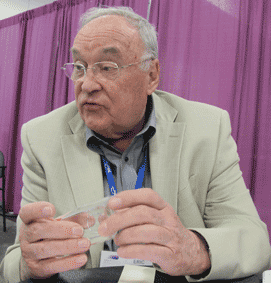
The US Food and Drug Administration (FDA) has cleared Crux Biomedical’s inferior vena cava filter with bi-directional retrieval for the prevention of pulmonary embolism. This feature allows retrieval of the device from the femoral or jugular veins, a key consideration when access to one or the other vein is limited.
“Crux designed a device that is both more versatile and simple to use,” said Tom Fogarty, cardiovascular surgeon and founder of Crux Biomedical. “Bi-directional deployment and retrieval are extremely helpful in situations where access to either the femoral or jugular vein is not possible. The Crux vena cava filter with its innovative design and materials represents a paradigm shift in prevention of pulmonary embolisms in patients at risk.”
A recently completed pivotal trial consisting of 125 patients at high risk for pulmonary embolisms, called the RETRIEVEclinical study, was performed at 22 sites in the USA, Australia, New Zealand and Belgium. The study results were presented at the 2012 Society for Interventional Radiology (SIR) meeting.
In the study, the technical success rate of filter deployment was 98%; filter retrieval success was also 98%. The average retrieval time was 7 minutes. By the 6-month follow up of the study, no embolizations, migrations or fractures were observed.
“The Crux device demonstrated excellent deployment, retrieval and safety profile,” stated Robert R Mendes, principal investigator of the study; associate professor of Surgery, University of North Carolina; and Chief of Vascular Surgery, Rex UNC Healthcare. “The clinical study evaluation has demonstrated the Crux vena cava filter can be used safely for the prevention of recurrent pulmonary embolisms.”
“The Crux vena cava filter system is the first major design innovation in vena cava filters in some 40 years,” said Mel Schatz, CEO, Crux Biomedical. “We have been pleased with both the clinical outcomes in our pivotal clinical trial and the enthusiasm expressed by physicians using the Crux vena cava filter.” The device’s novel helical shape was designed to self-center and to conform more closely to the shape of the vena cava, as well as to reduce bends and stress that can compromise filter integrity.













